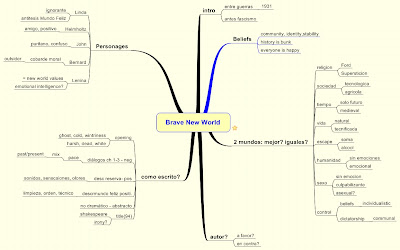I’ve been meaning to read 1984 since I went through my whole Burma/George Orwell phase a couple months ago. (Apparently, the world presented in 1984 is very similar to current reality in Burma/Myanmar…aka, scary.)

Like Brave New World, 1984 is one of those books I would not normally choose to read for fun. But I just started a book club with 3 friends, the goal of which is to read books we may not pick up on our own. The first books we chose were Brave New World (which I already blogged about) and 1984.

As you know, I liked Brave New World. But 1984? Not so much. It’s longer. It’s darker. I didn’t sympathize with any of the characters (you’re not supposed too), so I had a hard time bringing myself to care to read the whole thing. The writing style and tone of the book reminded me of The Fountainhead. (Read what I thought about that book here.)
All that aside, I am really happy that I read it. Because there are so many pop culture references to 1984! “Big Brother” for example – that’s from 1984. Not everyone knows that.
And in the context of book club, Brave New World and 1984 are a great for discussion. Both authors were upper-class British, Eton-educated younger sons. But the main difference is that Huxley wrote Brave New World in 1931, while Orwell wrote 1984 in 1949 (post-WWII, i.e. post-atomic bomb, and mid- Cold War).
As this month’s assigned presenter, I prepared background information and discussion questions for our book club meeting. 6x6 hosted, and made us “Victory Cupcakes,” which were awesome! She bought foil cupcake-liners, and dyed the frosting gray.
Anywho, here are some of my book club notes, questions, and quotes for discussion:

Dystopia: A society characterized by human misery, as squalor, oppression, disease, and overcrowding.
Utopia: An ideally perfect place, especially in its social, political, and moral aspects.
1984
Who is O’Brien? Did Winston know that he was a Inner-Party member all along? Does that matter? How can O’Brien read Winston’s mind?
“God is power…Power is power over human beings. Over the body – but, above all, over the mind. Power over matter – external reality, as you would call it – is not that important. Already our control over matter is absolute.” (page 264)
Brave New World
Huxley’s younger brother committed suicide due to clinical depression in 1911, and his mother died from an illness in 1908 (when Huxley was 14). How might that have influenced his writing?
Why was Shakespeare used so heavily in Brave New World?
Both Books
Both Orwell and Huxley foresee the end of religion. How is religion addressed in each book? How are they different and why? Is Henry Ford comparable to Big Brother?
How did the time periods in which they lived influence their writing?
How are women portrayed in the books? Do you like them? Trust them?

What are the similarities/differences to the authors’ approaches to sexuality. They seem to agree that sexuality is bad/dangerous. Why?
How do the books address the family unit?
On 21 October 1949, Huxley wrote to Orwell, congratulating Orwell on "how fine and how profoundly important the book is". In his letter to Orwell, he predicted:
"Within the next generation I believe that the world's leaders will discover that infant conditioning and narco-hypnosis are more efficient, as instruments of government, than clubs and prisons, and that the lust for power can be just as completely satisfied by suggesting people into loving their servitude as by flogging them and kicking them into obedience."
Here’s a link to a great article on both books.
See the Brave New World chart (to the left) bigger on this site.

